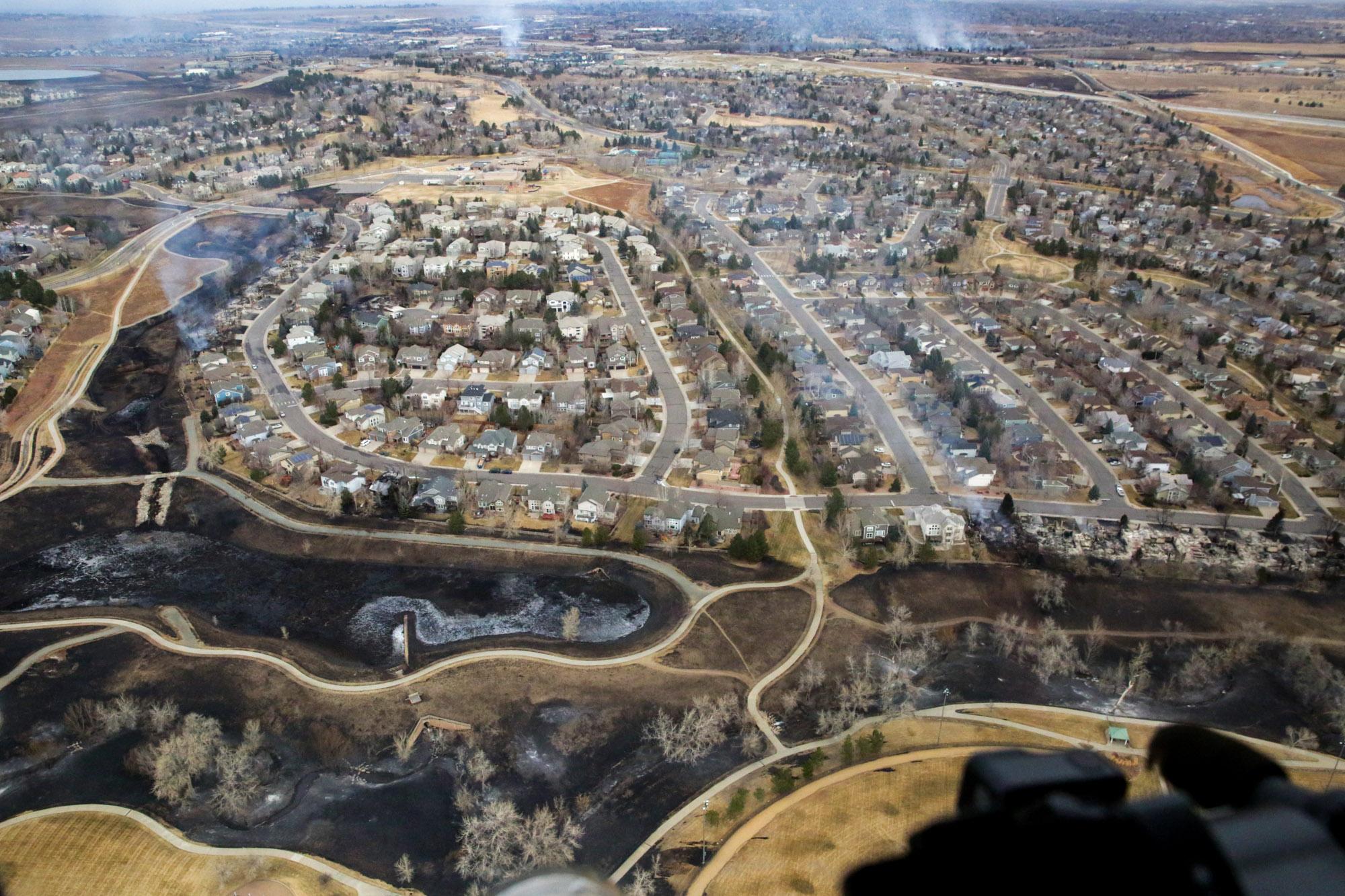
Human-caused climate change is disrupting ecosystems, upending the lives of billions of people around the world and has set the stage for dangerous, possibly unavoidable hazards, said scientists in the latest report from the Intergovernmental Panel on Climate Change.
In Colorado, the impacts are being felt statewide, from worsening wildfires to shrinking snowpacks and ongoing droughts — and the future could see more of the same, or worse.
The warming is already driving an uptick of droughts, floods and heatwaves that are endangering plants and animals and threatening human health, scientists wrote in the report, part of the sixth major assessment of climate science from the United Nations. The warming is intensifying so rapidly researchers say it could soon threaten the ability of nature and humans to adapt unless greenhouse gas emissions are quickly reduced, they write.
Linda Mearns, a senior scientist at the National Center for Atmospheric Research in Boulder who was a review editor for the report’s North American chapter, said the data are clear that warming is causing deaths and hurting human health — although those harms are not being felt equally.
“This effect is very much a function of age, gender, location and socioeconomic status,” she said. “Without adaptation, there would simply be higher mortality and morbidity.”
Limiting warming to 1.5 degrees Celsius above pre-industrial levels could substantially reduce potential damage and losses, but scientists say there’s little doubt that some of the effects are irreversible.
The 3,600-page report evaluates the existing impacts of climate change and reviews the vulnerabilities, capacities and limits of the natural world and humans to adapt to further warming. It’s broken down into topic-based chapters that synthesize other climate research.
Here’s are some of the key findings for Colorado and the Western United States:
- Wildfires are expected to increase and intensify as climate change leads to warmer and drier conditions. Warming has also led to longer fire seasons and increased firefighting costs. Smoke from intensified wildfires is linked to respiratory health problems and increased hospital admissions, which are projected to grow even more, especially in elderly, low-income and Black and Native American communities
- Snowpack and snow cover have declined as temperatures have increased. The warming is driving “snow droughts” that reduce the runoff that recharges critical water supplies
- Droughts are getting longer, more severe and are causing environmental and economic damage. Warming is also worsening tensions over competing water use interests
- Freshwater supplies that are being hurt by reduced snowpack and earlier runoff seasons are being further degraded by overuse, poor management and deteriorating water infrastructure
- Farming and food production are also threatened by drought and water shortages, and warming is already negatively affecting crop yields, quality and marketability of agricultural products. Increased warming is also expected to affect the occurrence and severity of diseases that infect livestock
More stories about climate and Colorado:
- Bipartisan poll finds spiking concern over water supply and climate change in Colorado and Western states
- The Yampa River is ‘over-appropriated’: There isn’t enough water for everyone who wants it
- The second half of 2021 was the warmest in Colorado history, national data shows
- Why a fire scientist sees climate fingerprints on the suburban Boulder County fires









